
Portraits of FoE Defenders: Interview with Yaman Akdeniz – “We Should Never Normalize Censorship”
By Marija Sajkas
Sometimes, authorities tell us that the strategic litigation cases we pursue are futile. Even if you win these cases, nothing will change, they say. But from a historical perspective, documenting the human rights abuses is particularly important. And we should never normalize censorship. Defending human rights today is defending the future and democratic principles tomorrow, says Yaman Akdeniz, Law Professor at Istanbul Bilgi University and co-founder of İFÖD – the Freedom of Expression Association.
Yaman Akdeniz is also an inaugural recipient of the CGFoE Award for Excellence in Legal Services, recognized for his work on a ruling by the European Court of Human Rights that found blocking access to YouTube violated Article 10 of the Convention. As part of CGFoE’s “Portraits of FoE Defenders” series, Marija Šajkaš, CGFoE’s Senior Communications Manager, spoke with Akdeniz about the current situation in Türkiye and the future of freedom of expression...
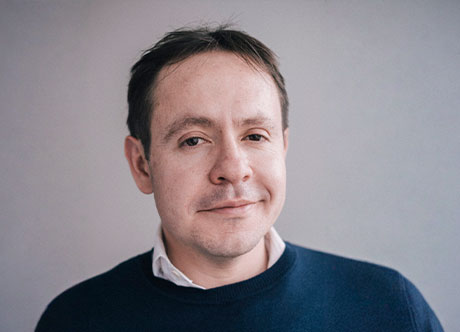
Portraits of FoE Defenders: Interview with Emmanuel Vargas Penagos
By Marija Sajkas
For September’s edition of “Portraits of FoE Defenders,” Marija Šajkaš, CGFoE’s Senior Communications Manager, is in conversation with El Veinte Co-Founder Emmanuel Vargas Penagos on the state of freedom of expression in Colombia and broader Latin America, El Veinte’s recent constitutional court victory, and a flood of online attacks that followed.
Emmanuel Vargas Penagos is the co-founder and co-director of El Veinte, a Colombian NGO dedicated to defending freedom of expression and digital rights. He is also a PhD researcher in AI and Law at Örebro University in Sweden, focusing on the Human Rights implications of automated content moderation. ...

Interview with Jon Allsop on the AP’s First Amendment Case
By Marija Sajkas
This week, Marija Šajkaš, CGFoE’s Communications Specialist, interviews Jon Allsop, Editor of Columbia Journalism Review’s flagship daily newsletter, about the Associated Press and its press freedom case against the Trump administration. As one of the most trusted and far-reaching news organizations...
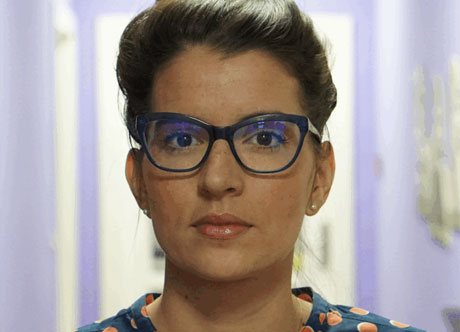
Portraits of FoE Defenders: Interview with Nevena Krivokapić Martinović on Price Moot and Digital Rights
By Marija Sajkas
This week, as part of our new interview series, “Portraits of FoE Defenders,” Marija Šajkaš, CGFoE’s Senior Communications Manager, speaks to media lawyer Nevena Krivokapić Martinović about the Price Moot Court, its partnership with CGFoE, and the state of digital rights in Serbia...
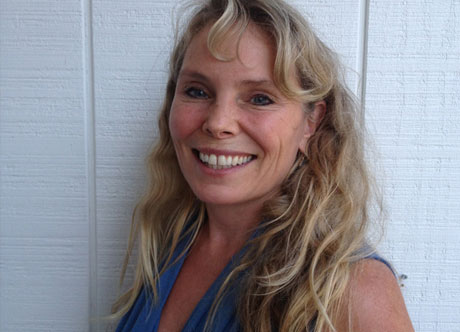
Interview with CGFoE’s Associate Director Dr. Hawley Johnson
By Marija Sajkas
Dr. Hawley Johnson has been with Columbia Global Freedom of Expression (CGFoE) for 10 years and is currently at the initiative’s helm. She has been educated in Germany, France, Switzerland, and the United States and is a proud Columbia University alumna. In addition to earning her Ph.D. in...
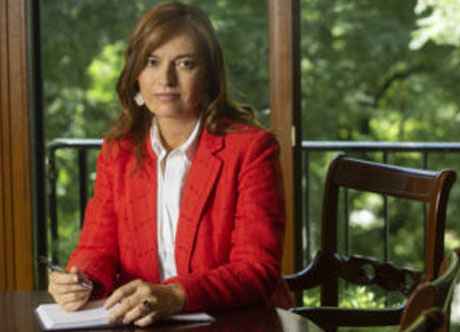
Interview with Viviana Krsticevic on Violations of Women’s Rights in Iran
By Marija Sajkas
Viviana Krsticevic is the Executive Director of the Center for Justice and International Law (CEJIL), a civil society organization that works throughout the Americas to promote human rights using international law and the Inter-American System for the Protection of Human Rights. She...

LGBTQ+ Materials From & About Eastern & Central Europe, The Caucasus & Central Asia: The Holdings Of The New York Public Library & The Libraries Of Columbia, Cornell, Harvard & Princeton Universities
By Marija Sajkas
This is an indexed checklist of works by and about the diverse LGBTQ+ communities of Eastern Europe and the now independent countries of the Former Soviet Union, as collected by the New York Public Library and the university libraries of Columbia, Cornell, Harvard and Princeton...
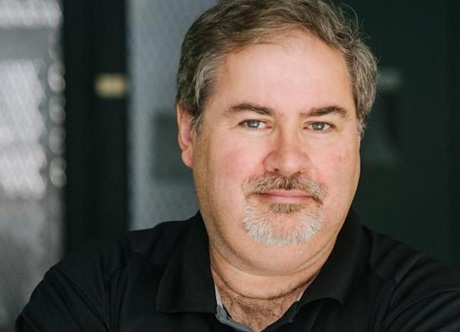
Drew Sullivan: Many of the „scoops“ by pro-government media about KRIK appear to come from surveillance
By Marija Sajkas
It's a serious misuse of state resources and a sign that Vucic will use autocratic methods to attack those who pose a risk to him. In this case, the risk is the truth, as published by KRIK, says Drew Sullivan, one of the founders of OCCRP, a global investigative network that reports about organized crime and corruption, in the conversation for Cenzolovka...

Women in newsrooms: perspectives on equity, diversity and resilience
By Bojana Kostic, Jennifer Adams and Marija Sajkas
Newsrooms, and the communities built within them, are a microcosm of society, subject to unique internal norms and standards that create an equally unique working culture. However, all are subject to – potentially even more so than in other industries given the nature of news...

Mapping anti-migrant rhetoric, attacks, and smear campaigns against independent journalists and human rights defenders in Bosnia and Herzegovina
By Marija Šajkaš
Maya Luna Imperial, Ana Vepkhvadze, Ana Gerginov, Katarina Tomasevic, TaylorWishnov and Stefanie Barton. Lead Researcher / Responsible Marija Sajkas. Supervising Faculty Everita Silina Julien J. Studley Graduate Program in International Affairs, School of Public Engagement...

Bosnian Women Journalists and Advocates Receive Death Threats for Supporting Refugees
By Marija Šajkaš
SARAJEVO—“Those prostitutes … should be lynched so they remember whom they’re dealing with,” read one comment on a Bosnian “anti-migrant” Facebook group post targeting Zehida Bihorac. Other comments were even more explicit, detailing graphic and sexually violent threats...

Matthew Caruana Galizia: It feels anxiety is never-ending. Those who are responsible for my mother death should be in jail
By Marija Šajkaš
In an exclusive interview for Cenzolovka, Matthew Caruana Galizia talks about fighting the impunity for the killing of his mother, an investigative journalist Daphne Caruana Galizia, about journalists' threats and fears, about an effort of the past president of the European Commission...

While there is impunity for crimes against journalists in Serbia, in Slovakia, the killers of Jan Kuciak were convicted in just one year
By Marija Šajkaš
Peter Bárdy, editor in chief of the portal for which the murdered journalist Ján Kucijak worked talks to Cenzolovka about his colleague who investigated embezzlement of public money and mobsters with political connections...
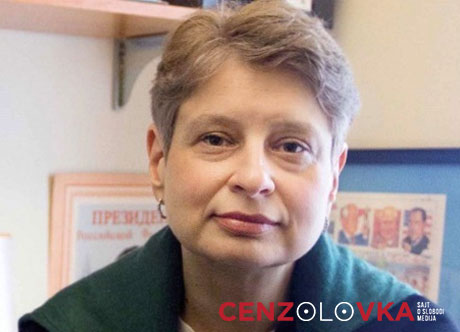
Khrushcheva: Media creates a perception of reality and people live in it rather than in their actual factual life
By Marija Šajkaš
There is no longer an option to dispute. Everyone lives in their own bubble, engaged with their own "truth." So propaganda becomes not just a political tool but a part of a constructed reality, a reality beyond just slogans, speeches, posters, parades and so on. Today, what's a one man's...
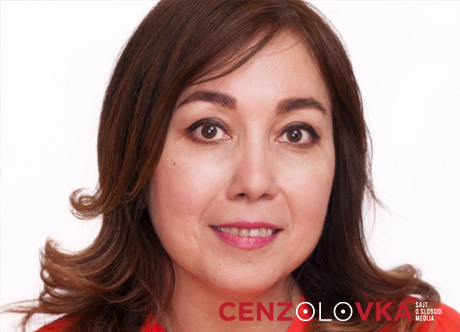
Gulnoza Said: For the Future of Serbia it is very important to prosecute all involved in Curuvija’s murder
By Marija Šajkaš
In the interview for Cenzolovka, CPJ’s Europe and Central Asia program coordinator Gulnoza Said says that she is often focused on Serbia more than to other European and Balkan countries, and “not in a good way.” She also said that she had noticed a greater number of media violations...
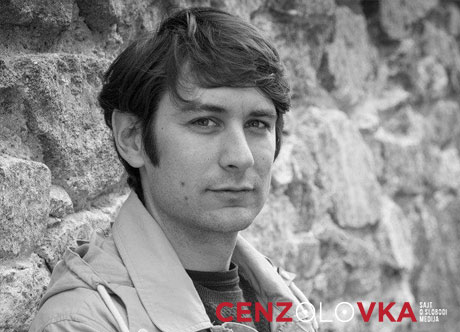
Most people are in quarantine, but the enemies of press freedom are not
By Marija Šajkaš
Some governments, as well as other actors, abuse the sanitary emergency to violate press freedom. Their actions range from repressive laws, allowing arbitrary prosecutions, to hate campaigns against critical journalists, says Pavol Szalai, a new Head of European Union & Balkans Desk of Reporters Without Borders. A new Head of European Union & Balkans Desk of Reporters Without Borders (Reporters Sans Frontiers- RSF)...

Politicians who view journalists as enemies or security threats encourage attacks
By Marija Šajkaš
Populists emphasize domestic isolationism and security over all else, including and especially freedom of the media and expression. This framing puts our safety and our freedoms at odds, when actually, we can't have one without the other, and positions journalists and media workers as a threat to that safety, says Jennifer Adams, international expert focused on protection of female journalists on the Internet...

Coliver: How Trump has shaken up the system that in the U.S. guarantees full freedom of expression
By Marija Šajkaš
The argument could be made that the system right now is out of balance; that our tradition of tolerance doesn’t quite know what to do with this new situation where the President makes statements that are inflammatory, says Sandra Coliver for Cenzolovka. Coliver is a world-renowned expert for freedom of media and expression, and in this interview, she talks about an extraordinary...

Nani Jansen Reventlow: Fake News Regulations are Often Used for Silencing the Opposition
By Marija Šajkaš
Who has the right to be forgotten on the Internet? Is writing a single Tweet enough to qualify the action as harassment? Do we need laws against individuals who “only” repost threats or fake news on social media? These are some of the questions discussed with Nani Jansen Reventlow. Nani Jansen Reventlow is an international lawyer specialized in human rights litigation, responsible for...

Désir: Journalists have to be protected and shouldn’t be pressured in any way
By Marija Šajkaš
Harlem Désir, a current OSCE Representative on Freedom of the Media, speaks for Cenzolovka about frequent attacks on journalists and about OSCE’s work on improving the media situation in Serbia. Harlem Désir, a current OSCE Representative on Freedom of the Media, is a French politician and a prominent member of the Socialist Party of France, and a past member...

Dr. Michelle Ferrier about attacks on female journalists: There are long-term psychological impacts of hate. You never forget.
By Marija Šajkaš
Dr. Michelle Ferrier, the Dean of the School of Journalism & Graphic Communication at Florida Agricultural & Mechanical University in Tallahassee, Florida, and the founder of TrollBusters.com, a platform that provides help to female journalists in distress, speaks about impacts that online thretes may have on journalists and to free and objective reporting...

Two landmark judgments from Montenegro seeking to end impunity for crimes against journalists
By Marija Šajkaš
From as far back as when Montenegro gained independence in 2006, the country has had a reputation for being a place where family and other ties were stronger than the requirements of the law, and where nepotism and corruption were the natural state of affairs. Nevertheless, in the last couple of years, there have been some signs of improvement. The latest coming from an otherwise unimaginable direction – the courts made findings against the government, and in favor of an investigative journalist...
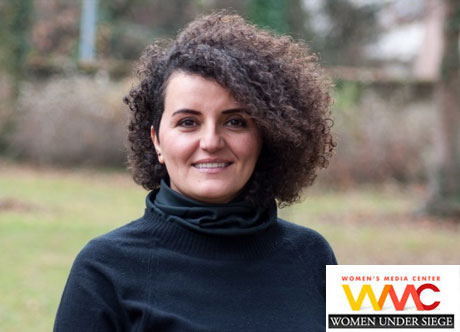
A look inside Syria’s emerging feminist media
By Marija Šajkaš
Ever since she was a girl, Rula Asad wanted to be a soccer player, but her family gave her a flat-out “No.”
Even before the Arab Spring, there were a few female soccer teams in Syria, and in the 1990s, Asad’s generation, another team formed. She played soccer for three years, but when the time came for her to pick a subject in school, Asad chose media studies—so that she could remain close to soccer by covering sports. Her dream was to become a top sports journalist...

Facebook’s “Explore Feed” Experiment Threatens Independent Voices in Serbia
By Marija Šajkaš
Facebook’s experimentation with a feed that would sideline everything but user-generated content and paid posts is threatening to separate independent journalists and civil society representatives from their audiences in Serbia.
“What is the best way to hide online content? Place it into the Explore Feed.”...
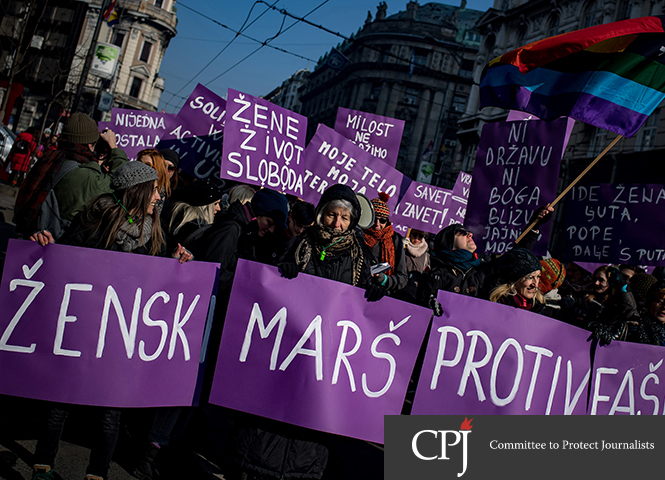
Two-fold risk for Serbia's women journalists as attackers target their work and gender
By Marija Šajkaš
"In the past five years I was publically called many things. I was an old hag, a sterile, cheap Soros' prostitute, a hooker, not f***ed enough, in need of a good prick, and destroyer of the Serbian Orthodox Church," said Tatjana Vojtehovski, a Serbian television journalist with a large presence on social media. "My response was always to publish all insults on social media. I truly believe that the best protection I could have is from...

Efforts to stop sex-trafficking focus on hotels
By Marija Šajkaš
Anneke Lucas survived being trafficked for sex not once, but twice.
“I was 9 years old when an elderly English-speaking man took me to the United States in his jet and sex-trafficked me in a luxurious hotel,” says Lucas, an anti-trafficking advocate and the founder of the nonprofit organization Liberation Prison Yoga.

‘A fate worse than death itself’: Women seek the remains of loved ones in the former Yugoslavia
By Marija Šajkaš
In the languages of the former Yugoslavia “suza” means “tear.” And in the more than 20 years that have passed since the end of the wars that dismantled the country in the 1990s, it seems that there is one, very last tear that many mothers, wives, daughters, and sisters cannot shed until the mortal remains of their closest kin are found, identified, and properly buried. Despite the decades that have passed, there are some 10,700 individuals still unaccounted for, according to the International Committee of the Red Cross...

How influence of Russian media risks making Serbia a Moscow bureau
By Marija Šajkaš / CPJ Guest Blogger
For a couple of days last month, uninformed tourists visiting Serbia could easily have believed that the country is a Russian outpost. With large photos of Vladimir Putin on their covers, Serbian tabloids--by far the biggest source of print information in the country--were engaged in a discussion over whether the Russian President would defend Serbia and its contested part of Kosovo, or trade it for recognition of Crimea. Added to that were front-page headlines evoking Cold War rhetoric, including the government-controlled Informer's September 20 edition...

Captured News Media: Bosnia and Herzegovina, Serbia, and Montenegro
By Milka Tadić Mijović and Marija Šajkaš
During the 1990s, the countries of the former Yugoslavia went through a series of ethnic wars culminating in at least 100,000 lost lives, economic devastation, and suspension of basic human rights. For most of that turbulent era and immediately after the wars, it was independent media in the region that were organizing and unifying civil society, giving voice to political dissent, repairing broken connections, and fighting the narratives of war propaganda. Their work was at times heavily supported by a number of international donors, and after the signing of the peace accord in Dayton in the United States in 1995, that support was multiplied and extended...

Caught between the East and West: The “Media War” intensifies in Serbia and Montenegro
By Guest | Europe and Eurasia, Funding
For a couple of days last month, uninformed tourists visiting Serbia could easily have believed that the country is a Russian outpost. With large photos of Vladimir Putin on their covers, Serbian tabloids--by far the biggest source of print information in the country--were engaged in a discussion over whether the Russian President would defend Serbia and its contested part of Kosovo, or trade it for recognition of Crimea. Added to that were front-page headlines evoking Cold War rhetoric, including the government-controlled Informer's September 20 edition...
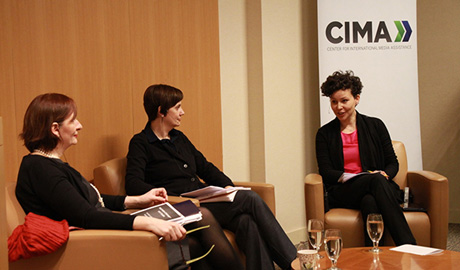
Creating Sustainable Media in the Balkans
By Valerie Sinden Europe and Eurasia, Sustainability
CIMA hosted a talk-show style discussion this week on the precarious situation for media in the Balkans, featuring Milka Tadic Mijovic of the Weekly Monitor and Marija Sajkas of the Media Diversity Institute. The panel, on April 2, opened with moderator Ivana Cvetkovic Bajrovic , NED’s senior program officer for Europe, setting the stage for why the conversation matters, especially in Washington where shifting priorities create an environment where massive investment may not necessarily have the follow up needed to truly improve a media environment.

From the Cradle of the Nation to the Most Expensive Serbian Word:
Changes in Serbian Public Language in the Last Decade of the Twentieth Century
The words people use reflect their view of the world. In totalitarian societies the primary goal of a regime's language is to influence public opinion. A closer inspection of the most exploited phrases in Serbian public discourse in the period of the late 1980s until 2000 reveals a strong presence of propagandist language. Thus, it can be argued that the consequences of Slobodan Milosevic's politics are visible not only in the devastation of the people and the country but also in the sphere of Serbian public discourse. It is not only that his politics influenced the language. Rather, it is precisely because of the rich and diversified propaganda language of the regime that Slobodan Milosevic was able to maintain his firm grip on power in Serbia for 13 years....
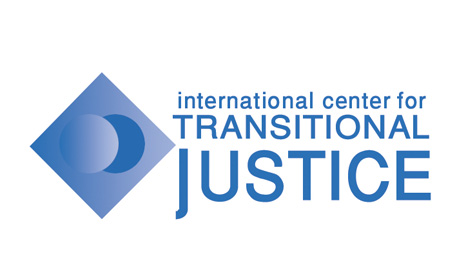
Transitional Justice and the Role of the Media in the Balkans
Discussion Paper
Prepared for the International Center for Transitional Justice by Marija Šajkaš
Analysis and reflection on the impact of the media’s reporting, both during and since the Balkan conflicts of the 1990s, has been starkly limited within the transitional justice context. To be fair, there is little dedicated focus in other regions of the world on positive examples where journalists and the media have challenged official tolerance for serious human rights violations, including war crimes. However, in the case of the Balkans, the ongoing lack of discussion about the constructive potential of the media’s role in transitional justice efforts is complicated by a series of factors, not least of which is the former Yugoslavia’s
communist past and widely divergent attitudes about the conflict itself. This brief discussion...

THE WORD THAT BECOMES THE DEED
Essay on apology
Can the apology really change something, or is it unnecessary, since it cannot annul the previous events. What are the foundations of the presumption of collective apology? How important is that what we pronounce? Ever since Mr. Vojislav Kostunica has been officially representing the state in various high ranking functions, journalists from almost all countries with which Serbia prior to the fratricidal war was in a fraternity-and-unity hug, ask the today’s Prime-Minister of Serbia the same question – when will he, on behalf of the people of Serbia, apologize for the crimes which were committed in their name...

Number 17
Marija Sajkas, ICRC Belgrade
Zeljko Maric, a Serb, was 21 when he disappeared on August 4, 1995, inside Croatia at the height of the Balkans war. Two years ago Zeljko's father, Cedomir Maric, learned his son had died. Now he devotes his time to helping other families still looking for missing loved ones. The Marics were overjoyed when, after two daughters, a son had been born. Zeljko grew up to be a soldier and joined the army in 1995 - not to fight but to play in a military brass band. On 4 August 1995, he disappeared. "I still do not understand why he did not pull out with the rest of the troops," says Cedomir, who on that day fled with his family to a safer place. "There was no need for him to stay there. What was he thinking of...
